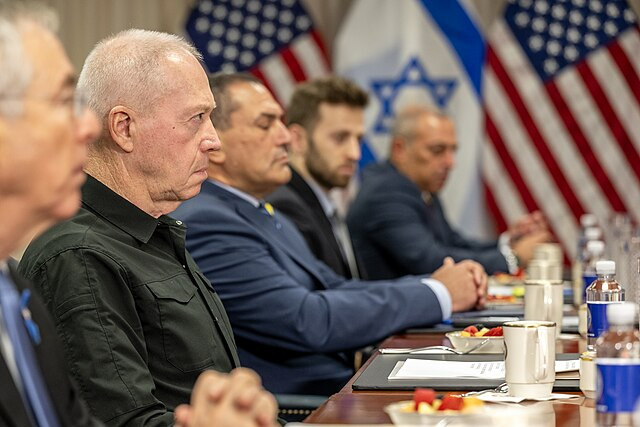As tensions in the Middle East continue to escalate, Israeli Defense Minister Yoav Gallant issued a stark warning to Iran, declaring that "everything is on the table" in response to the latest missile barrage directed at Israel. Gallant's comments came during an interview with Fox News, as Israel grapples with multiple fronts of conflict involving Iran and its regional proxies.
The recent surge in hostilities followed Israel's military incursion into Lebanon aimed at dismantling Hezbollah's operational capabilities. The Israel Defense Forces (IDF) confirmed the killing of Hezbollah leader Hassan Nasrallah, triggering a swift retaliation from Iran, which launched over 180 missiles towards Israel. The missile attack marked one of the most significant escalations in the region's already volatile situation.
"Israel will respond to the unprecedented Iranian attack in the manner of our choosing, and at the time and place of our choosing," Gallant stated. He emphasized that Israel's strategic response could potentially include targeting Iranian nuclear sites, a move that would raise the stakes in the ongoing conflict dramatically.
While President Biden has expressed reluctance to endorse a strike on Iran's nuclear facilities, he has reiterated that Israel has the right to act in self-defense. Meanwhile, Vice President Kamala Harris announced an additional $157 million in aid to Lebanon to address what she described as a worsening humanitarian crisis in the region.
The IDF is currently engaged in operations on multiple fronts, including Gaza, the West Bank, Lebanon, Syria, and even Yemen. The military's focus remains on neutralizing threats from Hezbollah, with reports indicating that more than 400 Hezbollah operatives have been killed in recent operations, including several key commanders. In Lebanon's capital, Beirut, the IDF has inflicted significant damage on Hezbollah's command centers and control systems, with efforts to dismantle Hezbollah's infrastructure ongoing.
"Our recent successes against Hezbollah demonstrate Israel's resolve to defend its citizens and sovereignty," Gallant said. "We have eliminated a significant number of their operatives, dismantled their attack capabilities, and are actively working to cut off their arms supply."
The IDF also confirmed that their recent airstrikes targeted tunnels along the Philadelphi corridor in Gaza, as well as Hezbollah's military assets in Lebanon. Israeli forces have focused on preventing weapons transfers from Iran to Hezbollah by targeting critical routes and monitoring border crossings around the clock.
Simultaneously, Israel's military efforts in the West Bank have intensified, particularly in areas like Tulkarm, where counterterrorism raids led to the thwarting of a major plot to carry out large-scale attacks. IDF fighter jets have been deployed to reinforce these operations, underscoring the broad scope of Israel's strategy against Iranian-backed threats in the region.
The situation has drawn attention from the international community, with Israeli officials calling for continued support from allies, including the United States. Gallant emphasized the importance of strategic cooperation with Washington, noting that a united front against Iran's aggression would be crucial in maintaining regional stability.
"Strategic cooperation between Israel and the United States is vital in the face of threats posed by Iran and its proxies," Gallant remarked. "We are strongest when we stand together, and we will continue to ensure that alignment between our nations remains robust."
In the broader geopolitical landscape, the IDF has also turned its focus to potential Iranian activities in Syria and Iraq, indicating a readiness to strike weapons intended for Hezbollah. Reports have surfaced that Israeli forces are already monitoring these regions closely to disrupt arms smuggling routes.
Developments in Gaza have also been critical, with the IDF continuing its operations against terrorist groups planning further attacks on Israeli civilians. Gallant pointed out that recent strikes in northern Gaza were preemptive measures based on intelligence that suggested potential attacks similar to the Hamas assault on October 7.




